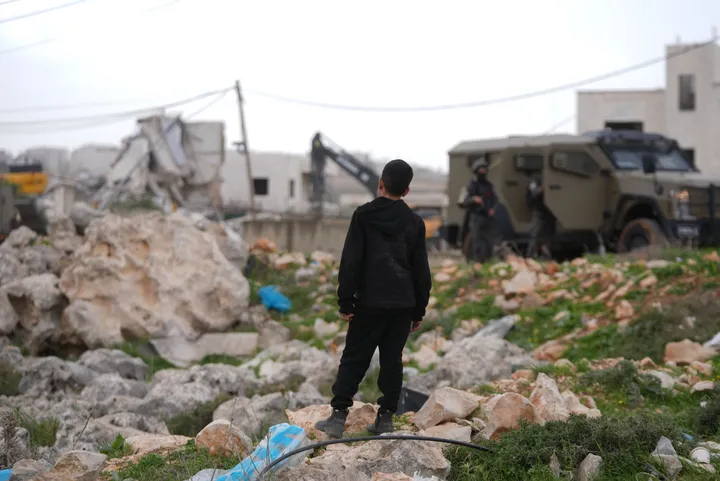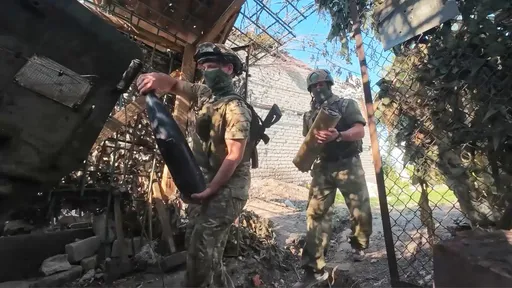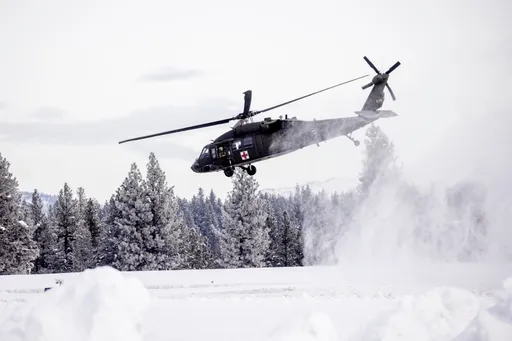Tensions in Iraq are whipping up. On November 7, three explosives-laden drones targeted Iraqi Prime Minister Mustafa al Kadhimi’s residence in the Green Zone. Two were shot down but one explosion injured seven security guards. When Kadhimi made his televised address shortly after the attack, his left wrist was in a bandage, suggesting he was wounded too. “We maintained security in the country, but some are still trying to tamper with Iraq's security and want it to be a gang state,” said the 54-year-old Prime Minister.
The international community quickly condemned the failed assassination bid. The US spoke out against “this apparent act of terrorism” while reaffirming that “Washington’s “commitment to our Iraqi partners is unshakeable.” Russia called the attack a “brazen act of terrorism.” During phone calls with Iraq’s Prime Minister, the Turkish Foreign Minister Mevlut Cavusoglu and the Bahraini Crown Prince Salman bin Hamad Al Khalifa denounced the drone strike. Egypt, Saudi Arabia, and Iran condemned the attack too.
The bombing followed several weeks of protests over last month’s parliamentary elections in Iraq, which led to Iranian-backed factions suffering huge losses. These factions claim that the election was fraudulent.
According to two Iraqi security officials who spoke anonymously to Reuters, two Iranian-sponsored militias — Kataib Hezbollah and Asaib Ahl al Haq — jointly carried out this attack. “We say the militias did this,” one Iraqi official said. “We say the Iranians maybe knew. We are not more sure than that.”
As of this writing, no group has claimed responsibility for this extremely serious crime.
Iranian fingerprints
Are we ready to blame Tehran for this drone strike on the Iraqi Prime Minister? Many in Washington believe so, pointing to Iran’s interests in maintaining a strong influence in Iraq via Shia paramilitary power — one of the groups that suffered in last month’s general election. Some have interpreted the attack as a declaration from Iran that it is committed to retaining its clout in Iraq regardless of how Iraqi citizens vote. It aims to do this via militias that the Islamic Republic has heavily invested in for many years.
But Dr Abbas Kadhim, the director of the Iraq Initiative at the Atlantic Council, told TRT World that it would be “premature to talk about consequences for any party at this point” because officials in Baghdad have yet to release the results from their investigation.
“At this point it’s all speculation," said Dr Kadhim. “One of our problems these days is that people just want to form their own investigative committees from 5,000 miles away and give you the conclusions in the following hour of what happened, even before anyone in Iraq woke up to see what happened. We really need to show some humility in terms of concluding what happened.”
“But certainly, once the investigation is done and results are backed by evidence, whoever did it should suffer the utmost consequences because this is a terrible assault not only on the Prime Minister of the country but also on the entire country and the fledgling democracy that Iraqis have paid dearly to accomplish.”
If Kataib Hezbollah, Asaib Ahl al Haq, or any other pro-Iran militia in Iraq is responsible for this attempted assassination of the Iraqi Prime Minister, would such non-state actors have carried it out without Tehran’s authorisation? Experts have raised doubts about this possibility.
Dr Trita Parsi, the co-founder and executive vice president of the Quincy Institute for Responsible Statecraft, pointed to the fact that this plot to kill Iraq’s Prime Minister “completely undermines Tehran's agenda in Iraq.” This suggests it seems “very unlikely” that such factions were given the greenlight by the Islamic Republic.
“Tehran has supported Kadhimi and has benefitted from his mediation between Tehran and Riyadh,” Dr Parsi told TRT World. “US intelligence has itself attested that Tehran's control over Shia militias in Iraq has deteriorated sharply after the assassination of Qasem Soleimani and al Muhandis. Increasingly, the militias are acting like the Houthis. They welcome Tehran's support, but they don't defer to Tehran, and they prioritise their own interest, not that of Iran.”
“I don’t know if the Islamic Republic knew of this in advance,” said Barbara Slavin, the director of the Atlantic Council’s Future of Iran Initiative, in an interview with TRT World.
“The militias have become more incoherent and irresponsible since the US killed Soleimani and al Muhandis [of the Quds Force and Popular MobilisationUnits, respectively]. However, whether Iran knew or not, by providing armed drones to the militias, it bears some responsibility for their actions.”
Cui bono?
“In every crime, you always have to ask who stands the most to benefit,” stated Dr Kadhim. “You could say anything about [the Iranians], and you can accuse them of [a lot]. But one thing they are not is ignorant or uncalculated in what they do...This is something that clearly would not be advised for them to do.”
Nevertheless, if Iran-backed Iraqi militias were responsible for the attack, it is safe to bet that Tehran’s interests and agendas in its western neighbour will suffer.
“Iran was already unpopular among many quarters [in Iraq], and this ham-handed attempt will only increase that animosity toward Iran and toward the groups it has supported,” explained Slavin.
Regardless of the extent to which Iraqi authorities find Iran culpable (if at all), Iraq faces grave problems that escalating violence would inevitably exacerbate. In order to overcome these major challenges, the country’s different Shia groups will need to find common ground where it concerns the next Iraqi government.
It will be important for these Shia factions to entirely avoid excluding groups that Tehran strongly backs. Yet there is a need to deal with the fact that there has been an overreach on the part of some of these Iran-sponsored militias.
Clearly, further escalation of violence is the last thing Iraq needs, because it will produce no winners for the long-term. Although violence can pay immediate dividends for certain groups, there is no denying that more bloodshed across Iraq is a “losing proposition for everyone,” as Dr Kadhim put it.























